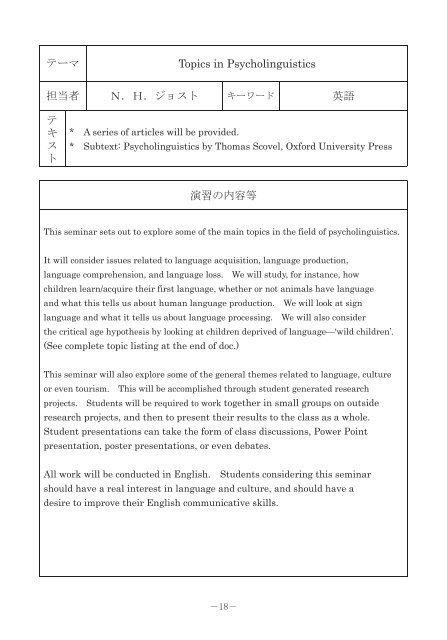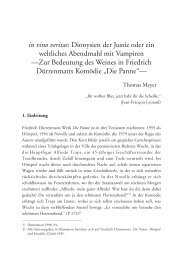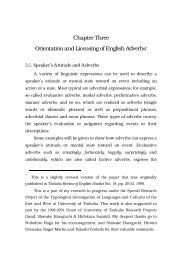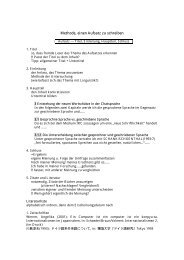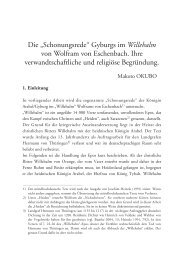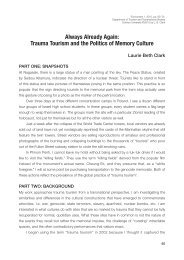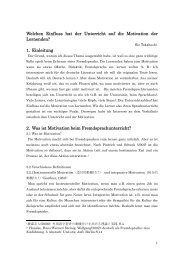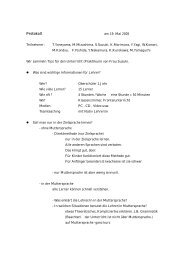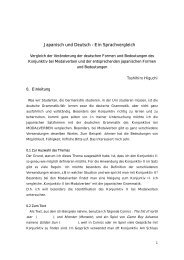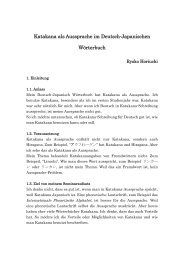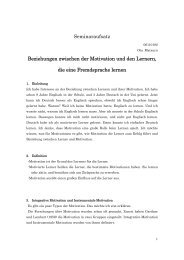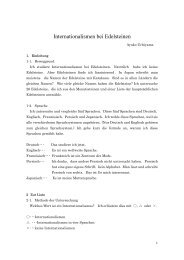Topics in Psycholinguistics à ¡‘à ¡¯à  ¹ ᜂᒰ ã§ºã§šã§´ã§šà ¡šà  «à  ¬à  » ⧷ à  ¹ à   à  ¬ à  » á¹¶ß©à ±Âኈ
Topics in Psycholinguistics à ¡‘à ¡¯à  ¹ ᜂᒰ ã§ºã§šã§´ã§šà ¡šà  «à  ¬à  » ⧷ à  ¹ à   à  ¬ à  » á¹¶ß©à ±Âኈ
Topics in Psycholinguistics à ¡‘à ¡¯à  ¹ ᜂᒰ ã§ºã§šã§´ã§šà ¡šà  «à  ¬à  » ⧷ à  ¹ à   à  ¬ à  » á¹¶ß©à ±Âኈ
Create successful ePaper yourself
Turn your PDF publications into a flip-book with our unique Google optimized e-Paper software.
<strong>Topics</strong> <strong>in</strong> Psychol<strong>in</strong>guistics<br />
<br />
<br />
<br />
<br />
<br />
* A series of articles will be provided.<br />
* Subtext: Psychol<strong>in</strong>guistics by Thomas Scovel, Oxford University Press<br />
<br />
This sem<strong>in</strong>ar sets out to explore some of the ma<strong>in</strong> topics <strong>in</strong> the field of psychol<strong>in</strong>guistics.<br />
It will consider issues related to language acquisition, language production,<br />
language comprehension, and language loss. We will study, for <strong>in</strong>stance, how<br />
children learn/acquire their first language, whether or not animals have language<br />
and what this tells us about human language production. We will look at sign<br />
language and what it tells us about language process<strong>in</strong>g. We will also consider<br />
the critical age hypothesis by look<strong>in</strong>g at children deprived of language—‘wild children’.<br />
(See complete topic list<strong>in</strong>g at the end of doc.)<br />
This sem<strong>in</strong>ar will also explore some of the general themes related to language, culture<br />
or even tourism. This will be accomplished through student generated research<br />
projects. Students will be required to work together <strong>in</strong> small groups on outside<br />
research projects, and then to present their results to the class as a whole.<br />
Student presentations can take the form of class discussions, Power Po<strong>in</strong>t<br />
presentation, poster presentations, or even debates.<br />
All work will be conducted <strong>in</strong> English. Students consider<strong>in</strong>g this sem<strong>in</strong>ar<br />
should have a real <strong>in</strong>terest <strong>in</strong> language and culture, and should have a<br />
desire to improve their English communicative skills.
For further <strong>in</strong>formation on the sem<strong>in</strong>ar, please view the homepage for<br />
this sem<strong>in</strong>ar.<br />
http://www2.dokkyo.ac.jp/~esemi020/<br />
OK <br />
Contents of Course Text:<br />
How Children Learn Language<br />
The Deaf and Language: Sign, Oral, Written<br />
Read<strong>in</strong>g Pr<strong>in</strong>ciples and Teach<strong>in</strong>g<br />
Wild & Isolated Children and the Critical Age Issue for L1 Acquisition<br />
Animals and Language Learn<strong>in</strong>g<br />
Children vs. Adults <strong>in</strong> SLL<br />
Second Language Teach<strong>in</strong>g Methods<br />
Bil<strong>in</strong>gualism, Intelligence, Transfer and Learn<strong>in</strong>g Strategies<br />
Language and the Bra<strong>in</strong><br />
Where Does Language Knowledge Come From? Innate? Learned?<br />
Language, Thought and Culture


